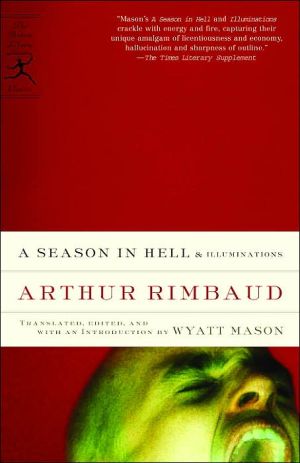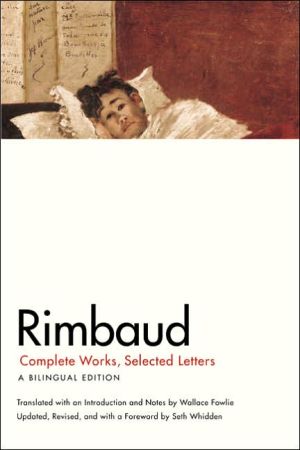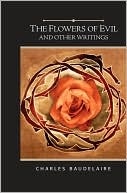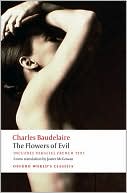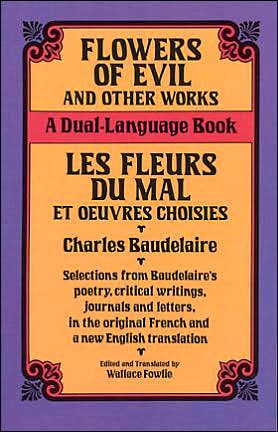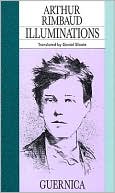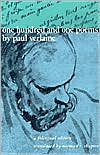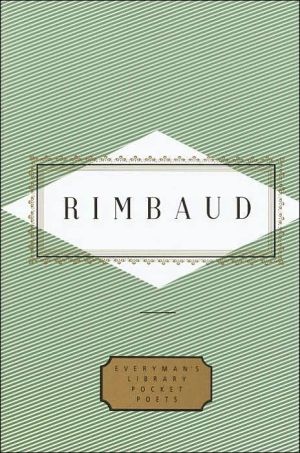A Season in Hell and Illuminations: A New Translation by Wyatt Mason
Translated, edited and with an Introduction by Wyatt Mason\ “The definitive translation for our time.”\ –Edward Hirsch\ From Dante’s Inferno to Sartre’s No Exit, writers have been fascinated by visions of damnation. Within that rich literature of suffering, Arthur Rimbaud’s A Season in Hell–written when the poet was nineteen–provides an astonishing example of the grapple with self.\ As a companion to Rimbaud’s journey, readers could have no better guide than Wyatt Mason. One of our most...
Search in google:
From Dante s Inferno to Sartre s No Exit, writers have been fascinated by visions of damnation. Within that rich literature of suffering, Arthur Rimbaud s A Season in Hell - written when the poet was nineteen - provides an astonishing example of the grapple with self. As a companion to Rimbaud s journey, readers could have no better guide than Wyatt Mason. One of our most talented young translators and critics, Mason s new version of A Season in Hell renders the music and mystery of Rimbaud s tale of Hell on Earth with exceptional finesse and power. This bilingual edition includes maps, a helpful chronology of Rimbaud s life, and the unfinished suite of prose poems, Illuminations. With A Season in Hell, they cement Rimbaud s reputation as one of the foremost, and most influential, writers in French literature.Times Literary SupplementMason's translations are confident and contemporary muscular but without muscling in on the originals. There is no crabby diction, but neither is there that self conscious pseudo-hipness with which it's all too tempting to render Rimbaud's lolling truculence of pose. Mason's approach has been to aim for common (as distinct from middle) ground between the literalist and the free, and the decision to translate successive versions and drafts pays off too, letting English-speaking readers see the genesis of poems and trace their often substantial alterations. Mason gets Rimbaud's range across impressively.
ENGLISH\ Long ago, if my memory serves, life was a feast where every heart was open, where every wine flowed.\ One night, I sat Beauty on my knee. —And I found her bitter. —And I hurt her.\ I took arms against justice.\ I fled, entrusting my treasure to you, o witches, o misery, o hate.\ I snuffed any hint of human hope from my consciousness. I made the muffled leap of a wild beast onto any hint of joy, to strangle it.\ Dying, I called out to my executioners so I could bite the butts of their rifles. I called plagues to suffocate me with sand, blood. Misfortune was my god. I wallowed in the mud. I withered in criminal air. And I even tricked madness more than once.\ And spring gave me an idiot’s unbearable laughter.\ Just now, having nearly reached death’s door, I even considered seeking the key to the old feast, through which, perhaps, I might regain my appetite.\ Charity is the key. —Such an inspiration proves I must have been dreaming.\ “A hyena you’ll remain, etc. . . .” cries the demon that crowns me with merry poppies. “Make for death with every appetite intact, with your egotism, and every capital sin.”\ Ah. It seems I have too many already: —But, dear Satan, I beg you not to look at me that way, and while you await a few belated cowardices—you who so appreciate a writer’s inability to describe or inform—I’ll tear a few terrible leaves from my book of the damned.\ BAD BLOOD\ My Gallic forebears gave me pale blue eyes, a narrow skull, and bad reflexes in a fight. I dress as barbarically as they. But I don’t butter my hair.\ The Gauls were the most inept animal-skinners and grass-burners of their day.\ They gave me: idolatry, a love of sacrilege, and every vice: anger, lust—glorious lust—but above all, deceit and sloth.\ I find even the thought of work unbearable. Masters and workers are all peasants. There’s no difference between a hand holding a pen and a hand pushing a plow. An age of hands! —I’ll have no part in it. Domesticity goes too far too fast. Begging—despite its inherent decency—pains me. Criminals are as bad as eunuchs: so what if I’m in one piece.\ But. Who made my tongue so truthless that it has shepherded and safeguarded my sloth this far? Lazier than a toad, I’ve gotten by without lifting a finger: I’ve lived everywhere. There is not a family in Europe I don’t know. —Which is to say families like mine which owe everything to the Declaration of the Rights of Man. —I’ve known every young man of means.\ If only I had one predecessor in French history!\ But no, none.\ It’s clear to me that I belong to a lesser race. I have no notion of rebellion. The only time my race ever rose up was to pillage: like wolves on carcasses they didn’t even kill.\ I know French history, know the Church’s eldest daughter. Had I been a boor, I would have journeyed to the holy land; in my head are roads through Swabian plains, views of Byzantium, ramparts of Jerusalem; both the cult of Mary and of pity on the cross comingle in me amidst a thousand profane visions. —I sit like a leper on broken pots and nettles, at the foot of walls eaten away by sun. —Later, I would have been a mercenary bivouacking beneath German nights.\ But there’s more! I dance on the sabbath, in a red clearing with old women and children.\ I don’t remember anything prior to this earth and this Christianity. I don’t see myself anywhere but in that past. And always alone; without family, speaking what language? I never see myself in Christ’s councils; nor in the councils of Lords—Christ’s delegates.\ What was I last century? I only see myself now. No more vagabonds or nebulous wars. The inferior race has spread, everywhere—people or, as we now say, reason: nationality and science.\ Oh, science! We’ve remade the world. For body and soul—as viaticum—we have medicine and philosophy—home remedies and cover-versions of popular songs. Princely amusements and the games they forbade. Geography, cosmography, mechanics, chemistry . . . !\ Science, the new nobility. Progress. The world turns. Why wouldn’t it?\ Numerical visions. We close in upon the Animus. What I say is irrefutable, oracular. I understand, and not knowing how to explain myself but in pagan words, I’d be better off shutting my mouth.\ Pagan blood returns! The Animus nears, why won’t Christ help me, grace my soul with nobility and liberty. But the Gospel is gone. The Gospel! The Gospel.\ I await God, hungrily. I am an eternal member of an inferior race.\ There I am on the beaches of Brittany. Cities blaze in the night. My day is done: I’m leaving Europe. The marine air will burn my lungs; unknown climates will tan my skin. To swim, trample grass, hunt, and above all, smoke; drink liquors as strong as molten metal—like our cherished ancestors around their fires.\ I’ll return with iron limbs, dark skin, an imperious gaze: my mask will mark me as member of a powerful race. I’ll have gold: be lazy and merciless. Women pamper fierce invalids returned from hot countries. I’ll enter politics. Saved.\ Now, though, I’m cursed: I can’t stand my country. The best I can hope for is drunken sleep, by the shore.\ But we don’t leave. —We take the same roads, burdened with my vice, vice that since the age of reason has sunk its roots right into my side—climbing skyward, beating me, toppling me, dragging me along.\ The final innocence and the final humility. That does it. I won’t hump my disgusts and deceits across the world.\ We’re off! The march, the burden, the desert, the boredom, the anger.\ What flag will I bear? What beast worship? What shrine besiege? What hearts break? What lies tell? —And walk through whose blood?\ Better yet: steer well clear of Justice. —The hard life, simple brutishness—lift the coffin’s lid with a withered fist, sit inside, suffocate. Neither old age, nor danger: fear isn’t French.\ I feel so forsaken I orient my instinct for perfection on any sacred image. O self-sacrifice; o magnanimous charity! All for me, of course! De profundis Domine—what a fool I am!\ When I was very young, I admired hardened criminals locked behind prison doors; I visited inns and taverns they frequented; with their eyes, I saw the blue sky and the blossoming work of the fields; I tracked their scent through cities. They were more powerful than saints, more prudent than explorers—and they, they alone, were witnesses to glory and reason!\ On the roads, through winter nights, without a home, without habits, without bread, a voice strangled my frozen heart: “Weakness or strength: Those are your options, so strength it is. You know neither where you’re going, nor why you’re going, entering anywhere, answering anyone. You’re no more likely to be killed than a corpse.” By morning, I had developed such a lost, dead expression that those I met may not have even seen me.\ In cities, mud suddenly seemed red and black, like a mirror when a lamp is moved through an adjoining room, like treasure found in a forest. Good luck, I cried, and I saw a sky flooded with smoke and flame; and to my left, to my right, all the world’s riches burned like a billion thunderbolts.\ But orgies and womanly companionship were denied me. Not one friend. I saw myself in front of an angry mob, facing a firing squad, weeping incomprehensible sorrows and forgiving them, like Joan of Arc: “Priests, professors, masters: you falter bringing me to justice. I was never one of you; I was never Christian; my race sang upon the rack; I don’t understand your laws; I have no moral compass, I’m a beast: you falter . . .”\ Yes, my eyes are shut to your light. I’m an animal, a nigger. But I can be saved. You’re all fake niggers, you brutal, greedy maniacs. Merchant? No: nigger. Magistrate? Nigger. General? Nigger. Emperor—you itchy old scab—nigger. You drank Satan’s duty-free booze. —Fever and cancer thrill you. Cripples and codgers are so decent they ask to be boiled. —The wisest move would be to leave this continent, creeping with madness, a madness that seeks hostages for lost souls. I set out in search of the true kingdom of the children of Ham.\ Do I really know nature? Do I know myself?—No more words. I bury the dead in my belly. Shouts, drums, dance, dance, dance, dance! I can’t imagine a moment when whites will arrive and I’ll tumble into the void.\ Hunger, thirst, shouts, dance, dance, dance, dance!\ Whites arrive. A cannon! I submit to baptism, dress, work.\ My heart is struck by grace. And I never saw it coming!\ I’ve done nothing wrong. My days bring no burden, I’ll be spared repentance. I won’t have to suffer the torments of a soul dead to decency, whose harsh light rises as if from funeral tapers. The fate of the favorite son: an early grave, blanketed with limpid tears. Of course debauchery is as stupid as vice. Cast rot aside. But no clock will ever do more than merely mark our hours of purest pain! Will I be carried off, like a child, to play in paradise, forgetting all my misfortune!\ Quick: are there other lives? —It’s impossible to sleep surrounded by riches. Riches are supremely public. Only divine love grants the keys to science. I see that nature is only a spectacle of goodness. Farewell chimeras, ideals, mistakes.\ The angels’ prudent songs rise from the ship of souls: divine love. —Two loves! I may die of earthly love, or of devotion. I’ve left souls behind whose suffering will swell with my departure! You pluck me from the shipwreck; are those who remain not my friends?\ Save them!\ Reason is born within me. The world is good. I bless life. I will love my brothers. These are no longer idle promises of youth, nor a hope of evading old age and death. God is my strength. I praise God.
A season in hellLong ago, if my memory serves [...]"3Bad blood4Night in hell10Deliria12I. Foolish virgin12II. Alchemy of the word16The impossible23Lightning25Morning26Farewell27IlluminationsAfter the flood31Childhood32Tale35Sideshow36Antique37Being beauteous38Lives39Departure41Royalty42For a reason43Drunken morning44Lines45Untitled fragments46Workers47Bridges48City49Ruts50Cities [I]51Vagabonds52Cities [II]53Vigils55Mystic56Dawn57Flowers58Common nocturne59Seascape60Winter celebrated61Anguish62Metropolitan63Barbarian64Fairy65War66Advt67Youth68Promontory70Devotion71Democracy72Stages73Historic evening74Bottom75H76Movement77Genius78A draft of A season in hell[from Bad blood]82False conversion84[from Deliria II : alchemy of the word]86Hunger87Eternity88Golden age89Memory90Ends of the earth91Bl[is]s92Four seasons95
\ Entertainment WeeklyIt's quite likely that [the season’s] most exciting new book of verse was stamped Made in France more than a century ago. É Rimbaud Complete, Wyatt Mason's bouncy new translation of the avant-garde poet's hallucinatory corpus, finds new music in the writing, revealing a classical artist.\ \ \ \ \ Library JournalAn important new rendering of a major poet.\ \ \ Times Literary SupplementMason's translations are confident and contemporary muscular but without muscling in on the originals. There is no crabby diction, but neither is there that self conscious pseudo-hipness with which it's all too tempting to render Rimbaud's lolling truculence of pose. Mason's approach has been to aim for common (as distinct from middle) ground between the literalist and the free, and the decision to translate successive versions and drafts pays off too, letting English-speaking readers see the genesis of poems and trace their often substantial alterations. Mason gets Rimbaud's range across impressively.\ \ \ \ \ Tampa TribuneMason does a splendid job in arrangement and translation.\ \ \ \ \ Toronto StarWyatt Mason's translations of Rimbaud's literary works manage, more than any others, to convey to contemporary ears the real sense of the work. Previous attempts had strained to maintain a sense of the French style or an equivalence in rhyme and form. For all their good intentions, these ideals forced the renderings into awkward locutions or pretentiously formal tropes, making Rimbaud sound as much like a biblical elder as a modern poet. Mason has finally given us an English Rimbaud we can read as we should, as if he were kin to Jack Kerouac, to Charles Bukowski, to Jim Morrison [É] his Rimbaud Complete will surely live on as the standard edition.\ \ \ \ \ London Review of BooksWyatt Mason’s [translations] capture the rigours of the original.\ \
